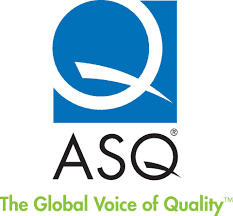Course structure and detailed program are reported below.
Master Six Sigma Black Belt - ASQ Certification - Interactive Live Webinar
Testimonials
See all >

DURATION
6 live webinar sessions 3 hrs each + 3 individual webinar sessions

UPCOMING COURSES
4 March 2026

PRICING
Contact our school to have more information
The Six Sigma Black Belt Programme was designed by Advance consultants to transfer internationally recognized Best Practices in the Six Sigma area to the Black Belt level. The Six Sigma Black Belt is a professional who can teach Six Sigma philosophies and principles, including tools, demonstrate leadership, understand team dynamics and assign roles and responsibilities to team members.
The Six Sigma Black Belt professional has an in-depth knowledge of all aspects of the definition, measurement, analysis, improvement and control (DMAIC) phases, has a knowledge of Lean Enterprise concepts, is able to identify non-value-added elements and activities and uses specific tools.
At the end of the Six Sigma Black Belt course a final exam is scheduled at the school and, after passing, Advance School will issue the 6 Sigma Black Belt certification. The exam includes a multiple-choice theoretical test and the presentation of a Six Sigma project which will be implemented.

The Six Sigma Black Belt ASQ (CSSBB) examination
At the end of the training course with Advance and after passing the school's 6 Sigma Black Belt exam, the candidate may also decide to take the ASQ CSSBB certification exam. In order to take the CSSBB exam, it is not necessary to have achieved Six Sigma Green Belt (CSSGB) certification. One of the requirements to take the ASQ Black Belt exam is that you have already implemented Six Sigma projects. For more information on the ASQ exam, eligibility and registration, please refer to the ASQ exams section of the website.

ASQ - The global voice of Quality
ASQ, The Global Voice of Quality, is an association of more than 80,000 members and is present in more than 150 countries. ASQ aims to promote principles of quality and best practices, improving the use and impact of quality in response to different business needs around the world. In addition, ASQ aims to improve the tools available to professionals.
Advance also offers In-house training programs upon request.
-
Teaching plan
READ THE DETAILS ▾
PROGRAMME STRUCTURE
The Master’s includes:
- A classroom training phase
- An individual study phase with remote support from the instructors
- A follow-up phase of the Six Sigma project through 3 Webex sessions
- In-class mock exams with a discussion of the results
During the course practical exercises will be carried out to allow an immediate verification and application of the concepts presented in the classroom and the tools adopted in Six Sigma implementations will be used to identify the sources of waste and volatility.
Practical examples of Six Sigma implementations will also be discussed in order to accelerate the acquisition of skills by the student.
The teacher has many years of experience of Six Sigma implementations carried out at multinational companies that have made Six Sigma a fundamental pillar to improve their KPI's.
The teaching, material and the final exam are in English.
PROGRAMME CONTENTSI. Organization-wide Planning and Deployment
A. Organization-wide considerations- Fundamentals of six sigma and lean methodologies
- Six sigma, lean, and continuous improvement methodologies
- Relationships among business systems and processes
- Strategic planning and deployment for initiatives
B. Leadership
- Roles and responsibilities
- Organizational roadblocks and change management
II. Organizational Process Management and Measures
A. Impact on stakeholders
B. Benchmarking
C. Business measures- Performance measures
- Financial measures
III. Team Management
A. Team formation- Team types and constraints
- Team roles and responsibilities
- Team member selection criteria
- Team success factors
B. Team facilitation
- Motivational techniques
- Team stages of development
- Team communication
- Team leadership models
C. Team dynamics
- Group behaviors
- Meeting management
- Team decision-making methods
D. Team training
- Needs assessment
- Delivery
- Evaluation
IV. Define
A. Voice of the customer- Customer identification
- Customer data collection
- Customer requirements
B. Business case and project charter
- Business case
- Problem statement
- Project scope
- Goals and objectives
- Project performance measurements
- Project charter review
C. Project management (PM) tools
- Gantt charts
- Toll-gate reviews
- Work breakdown structure (WBS)
- RACI model (responsible, accountable, consulted and informed)
D. Analytical tools
- Affinity diagrams
- Tree diagrams
- Matrix diagrams
- Prioritization matrices
- Activity network diagrams
V. Measure
A. Process characteristics- Process flow metrics
- Process analysis tools
B. Data collection
- Types of data
- Measurement scales
- Sampling
- Data collection plans and methods
C. Measurement systems
- Measurement system analysis (MSA)
- Measurement systems across the organization
- Metrology
D. Basic statistics
- Basic statistical terms
- Central limit theorem
- Descriptive statistics
- Graphical methods
- Valid statistical conclusions
E. Probability
- Basic concepts
- Distributions
F. Process capability
- Process capability indices
- Process performance indices
- General process capability studies
- Process capability for attributes data
- Process capability for non-normal data
- Process performance vs. specification
- Short-term and long-term capability
VI. Analyze
A. Measuring and modeling relationships between variables- Correlation coefficient
- Linear regression
- Multivariate tools
B. Hypothesis testing
- Terminology
- Statistical vs. practical significance
- Sample size
- Point and interval estimates
- Tests for means, variances, and proportions
- Analysis of variance (ANOVA)
- Goodness-of-fit (chi square) tests
- Contingency tables
- Non-parametric tests
C. Failure mode and effects analysis (FMEA)
D. Additional analysis methods- Gap analysis
- Root cause analysis
- Waste analysis
VII. Improve
A. Design of experiments (DOE)- Terminology
- Design principles
- Planning experiments
- One-factor experiments
- Two-level fractional factorial experiments
- Full factorial experiments
B. Lean methods
Waste elimination
Cycle-time reduction
Kaizen
Other improvement tools and techniques
C. Implementation
VIII. Control
A. Statistical process control (SPC)- Objectives
- Selection of variables
- Rational subgrouping
- Control chart selection
- Control chart analysis
B. Other controls
- Total productive maintenance (TPM)
- Visual controls
C. Maintain controls
- Measurement system reanalysis
- Control plan
D. Sustain improvements
- Lessons learned
- Documentation
- Training for process owners and staff
- Ongoing evaluation
IX. Design For Six Sigma (DFSS) Framework and Methodologies
A. Common DFSS methodologies
B. Design for X (DFX)
C. Robust designs
-
Who is the course aimed at
The course is aimed at the following professionals:
READ THE DETAILS ▾
- Plant Managers
- Managers and staff resources in the Production, Supply Chain, and Quality areas
- Purchasing and Organization of industrial and service companies
- Members of a Lean - Six Sigma transformation team
- Companies that intend to implement Lean - Six Sigma and want to train their staff with a structured and updated course
- Consultants in the Operations field
- Production and process engineers
- Industrialisation managers and/or employees
- Project Managers
-
EXAMS
READ THE DETAILS ▾
In order to obtain the ASQ certification CSSBB - Certified Six Sigma Black Belt, a single final Computer Based Exam (CBT) is required, which can be held at Prometric Test Centres. In addition, candidates will have to submit 2 Six Sigma projects to ASQ. It is possible to submit only 1 project, but it's required a 3 years (or more) experience on topics covered by the Six Sigma BOK from ASQ.
Regarding the exam's date, there are six exam windows per year to sit for CSSBB exam: it is possibile to take the exam when you prefer based on the Test Centre's availability.
The exam consists of 165 multiple choice questions in English, over 4,5 hours.
The exam is open book (manuals can be consulted).
DATES Contact us to know exam dates at info@advanceschool.ch
REQUIREMENTS
3 years experience in Six Sigma, Qualità, Project Management or Lean roles.
-
Pricing and enrolment
Participation fees can vary depending on when you sign up. Contact su to know the early bird registration rebates.
READ THE DETAILS ▾
ENROLMENT FEE
Contact our school to have more information.
For registrations received 45 days before the start date of the course, it is foreseen a 5% rebate on the enrolment fee.
Note: The fee includes teaching material and Advance Exam. It does not include ASQ exam fee.
The course requires a minimum of 6 participants to run, in order to allow optimal interaction between participants and instructors
To enrol, send the registration form with the receipt of the bank transfer or a purchase order to the following Email: a.pfister@advanceschool.ch











